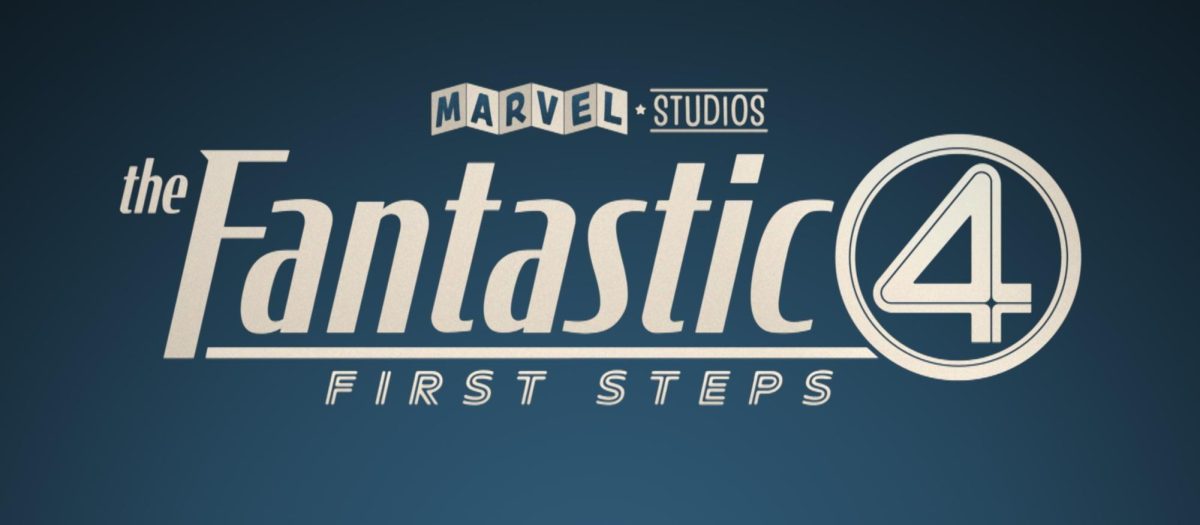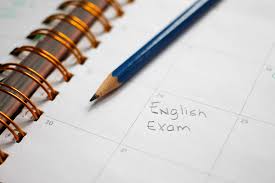As any junior in high school with parents that push me towards the label “academic overachiever”, I recently (as recent as you consider mid-October) took the PSAT. It was early on a Saturday morning– by early, I mean I woke up at a time I always would during the week but never dared to on a weekend– and was marked with the appropriate fanfare of crappy wet weather and just-slightly-too-chilly temperatures. When I entered the building, I was handed an ID card with the wrong birthday and sent to a room entrenched with the general vibe of teenage exhaustion and moody stress and reluctance. In short, it was like any other standardized test– and yet there I was again, in a room full of other teenage testers who’ve had similar prior experiences, ready to do it.
The reason for that, as far as schools have led us to believe, is that tests like these are important. However, as someone who’s taken many of these tests and has seen little immediate benefit, I wanted to know more about why. I spent weeks researching and writing an article about it, trying to scratch the itch that question left on my brain, to no avail. The topic was too wide, with too many branches of the issue that were too large to ignore yet too numerous to explore in their fullest in the time I had. I decided to narrow my exploration to the district, and I got in contact with Director of Assessments for MMSD, Tim Peterson to find out more. I wrote up a few basic questions, we scheduled a lunchtime virtual interview, and we finally sat down to talk.
Max: Hi, Tim, thank you so much for taking the time to talk to me today.
Tim: Sure, well, thanks for asking questions and being interested.
Yeah, of course.
Just to be kind of up front, one of my professional goals for this year is to actually get out to the high schools and listen, not so much talk but listen to students. And so when this came across, I was like, this is awesome.
(Laughs) Well, I’m glad I could provide that.
(Laughs) Yeah, thank you.
Okay. So in general, what do you believe is the purpose of standardized testing in MMSD?
So, a couple of things. First of all, the word standardized refers to the process of giving the test.
Gotcha.
And so that means that if I give you a– let’s pick on the ACT– if you give the ACT at Memorial and at La Follette, you should have the same process in place in order to actually take the test so that one gets the directions the same as the other, etc. So you’re standardizing the purpose of the administration, the environment.
Okay.
There are multiple types of tests, and I’m going to chunk them into three categories. One is the immediate instructional type, like, did everybody get to where they need to be? Thumbs up, thumbs down, thumbs sideways, etc. Something like that you do in class could be a weekly quiz, but it’s probably often more than that. The second type is what we refer to as benchmarks. These measure progress– if you set a goal on Day One, at the end of the year, you should be there. But you don’t want to just test on the first and last day– we should measure, where are you at along the way? So it kind of goes that the benchmark cycle is often more frequent than that, but maybe no more than three times a year.
Okay, cool.
And finally, the type that I think you’re referring to in your question are what are called summatives. An example would be an end of unit test. These tests show what you learned completely in this unit, in this section, in this year. The tests we’re looking at, we’re talking about, like the ACT, like the Pre-ACT, the Forward test, etc., Those were all summative tests to see your learning, your progress over the course of the year.
Got it.
So what is the purpose of it? It’s multiple purposes. One is for instructional purposes for that really quick cycle of programming, to see how well that curriculum is working and get students to where we want them to be no matter what. Then also so we can look at the larger picture of how the school is operating; maybe we need to put more resources here or there. That’s what we aim to measure in the district. So, when the district has the option to decide we’re going to give this test, the first question I always ask is: what are we trying to get at? What are we trying to measure? If you’re going to give a quiz at the end of the week, what are you trying to measure? And if you’re not going to use the data to do something, it’s a waste of everybody’s time… So a lot of it’s just making sure that everything [with the test] is in place so that the data can be used.
Awesome. On that note, how do you work to make sure standardized tests reflect the extent of a student’s knowledge and learning, rather than simply their skills at taking a test?
Well, that’s a great question. So part of it is from my position, I can only do so much. I can only provide the tools. I can only provide the assessments. But what really the heart of it is, what happens at the school level and in the classroom level… So I’ll try to keep it short. I mean, it’s my job (laughs). And by the way, I am not a cycle patrician, I am not a person who creates and studies tests. I’m a high school science teacher.
Gotcha. You mentioned trying to set students on track for their future before; how has MMSD changed and responded to shifting restrictions on standardized testing in universities over the past few years?
Personally, I think it’s a great thing that they’re not necessarily basing a huge amount of the acceptance on a single test. I don’t care if it’s the ACT or a quiz at the end of the week, it does not describe you as a person and as a learner. It’s where you were at that day, how you were feeling. I mean, so many things go into influencing those particular results. So it’s an indicator. And for colleges and universities, they look at the ACT and the SAT as indicators of potential success. They don’t say, “you scored a 30 on your ACT, you’re great for it,” because there’s so much that goes into it besides the academic goals. In just listening to what’s going on at the national level, I would say that more colleges and universities are going to start looking at these scores more once again probably in the next few years. So what we need to do as a school district and as Memorial and that we’re moving back in that direction to provide all students the opportunities to keep all doors open for them, because even today, while tests like the ACT and SAT may not be universally used got admission, they are absolutely used for scholarship programs.
(Laughs) Yeah. I recently took the PSAT/NMSQT, which is the whole reason I wanted to do this interview. How does MMSD work to inform about and prepare students for tests like the PSAT, which may not be required, but may be extremely helpful in preparing for your future with scholarship programs?
Well, an example I like to go to is Advanced Placement testing, because that’s not required either. So those kinds of things are what we need to do, we need to make sure we have a really strong and viable curriculum, which means it’s something that works to move you from this place of understanding to that place of understanding. We have excellent staff, we have excellent teachers, but we need to make sure they have the tools that they need and the chance to continue their own learning so that they can apply that new learning in the classroom. And then, also, high expectations (laughs). Saying to students, you can do this. It’s not necessarily about prep courses, because if you have the learning and it’s a solid fundamental education behind this, those tests are designed to figure out where you are at in your learning process… The test was designed to help see where you’re at in your ability to solve problems, to think, to understand a language, and in the case of, for instance, advanced placement, it could be to conceptually understand about music, about art, about another language, about history. So taking it beyond multiple choice, fill in the blank, it’s how are you doing in your thought process? How are your problem solving skills? And that’s what we do as teachers. That’s what we do as instructors. Because you know what? I could give you every single ACT that was ever written, and if you take the ACT tomorrow, it’s gonna be completely different questions… What teachers do is teach you how to think through it along the way… Sorry, long answer (laughs).
No, I appreciate the thoroughness. Thank you. Moving forward though, studies have shown that standardized tests may often carry biases in favor of and against certain groups. How does MMSD work to combat biases that standardized testing results might reflect, whether they be based on race, ethnicity, socioeconomic conditions, disability, etc?
Well, great question. So, any time someone like myself creates a question to ask you as a student, I’m looking at it through a certain lens that includes my background, my position, my age, everything about me. So for the people who write questions… It has to go through a really rigorous process of trial and error. Multiple people are looking at it from multiple demographic perspectives, and when they test some of these now, when they look at all of these questions, one of the things that they can do statistically is to look at one demographic scoring especially well on them. Are our white students scoring better on this question than our students of color?, etc. And they will look at that and they will pull it out, and they will change the question or completely get rid of it. Yes, all tests have some bias to them. What we as a district do have control over is which ones we purchase. We say [to testing vendors], this is important to us as a district. If I hear that there’s a question that is overly biased, I push back on those vendors. I ask them about this specifically and say, “What is your process to review this?”. For instance, when we started doing MAP testing, I got a report of a question that was something along the lines of “Which of the following is not a way we celebrate Christmas?” And there were four answers, and the correct answer was fireworks. (Laughs). Alright, now, I don’t know about you, but I live in a neighborhood where just about every other weekend, there’s fireworks, whether it’s a birthday or holiday or whatever. It’s also biased towards people living in the North, because we have a holiday season where people don’t typically shoot fireworks. But in the Southern hemisphere, absolutely. So if you came from Argentina and you said, “Hey, we always use fireworks,”… Long story short, I pushed back on the vendor. They removed 20 questions that had a similar kind of bias from the test. We did not use or see those questions ever again. I think it’s really important that we as a district keep raising those questions. I talk to about 20 different vendors throughout the year, and they know that I’m going to ask them about this. They know that MMSD is serious about this and if there is a question or concern, I am going to ask and push on it. That’s the only way that we can get change to happen. I have a vendor who said [about their test], “Yeah, yeah, this is not biased.” It’s like, “Let me see it.” It was– I’m not going to go there, but let’s put it this way. Their concept of “unbiased” was from a very white middle class perspective. “It’s not biased”, they said, “There’s nothing there about, you know, about slavery or anything like that.” They just didn’t get it. And so literally, I sat down and gave them a list of 20 questions of, are you doing this? Have you done this? Have you asked this? It’s been pretty quiet from them lately.
(Laughs) Gotcha.
But also at the state level, it’s incumbent upon the state to continue to look at all those kinds of things and to push back on vendors… Sorry, that was long again.
I appreciate the in-depth answers, thank you. On a more specific note, how are students who need standardized testing accommodations for learning disabilities notified to apply for them? Is there a specific window for registration?
Great question. So let’s put it this way. The purpose of accommodations is to kind of level the playing field to make it so that you and I have the same opportunity regardless of what supports or accommodations we need. So in the district, one of the things that we do is provide students who need accommodations with an annual plan that they sit down with family and staff and they go through with to create. And in the plan, it says… “these are the accommodations or supports that we can add in”. For instance, eyesight– I need to be able to magnify those words in order to see them. So in that plan, it would say “when Tim takes that test, he needs a magnification of about 200%,” let’s say. That is in a system that houses all those records in the district. My team will pull that information for every test that we give, districtwide. So right now we’re preparing for Access testing, which is English proficiency testing. If you are struggling with, let’s just say vision, we go in and we pull that information from this system over here and transcribe it so that it provides automatic resources for me based on my needs. So for online testing, we go behind the scenes and we will do a little checkbox that says “Tim is going to need a large font”, or “Tim’s going to perform better if he was in a small group setting versus a large group”. We check all those and that automatically turns on those accommodations or supports for students who have that need. I’m going to call it accommodations and supports because, for example, if you are an English learner, that doesn’t mean you need accommodations, you need supports. You might need to have something like a text to speech program if, say, your English reading isn’t so great, but if somebody reads it to you, you get it. You can hear that. And so text to speech is one of those options. And so we also turn that on behind the scenes or, in the case of the ACT, at the school level, we apply to the ACT and they provide those resources.
For the PSAT in particular, I’ve heard stories from some students who said they didn’t learn about the tests in a short enough window of time that they were able to apply for the accommodations that they needed to succeed. How does MMSD work in situations like those where the system falls short, and how does it communicate those windows of registration to students in need?
So the PSAT is in a state of flux right now. To be honest with you, this is the first time they’ve only given it online, period. And so that transition has caused some angst. Additionally, historically, for the Saturday ACT, the PSAT and Saturday SAT exams, the national dates have been decided at the local level completely. So it was all on a team of people, a small team of people at every high school. Beginning last year, we were like, you know what? This doesn’t make any sense. So they pulled me in. The guidance team from Memorial, along with other people from across the district at each of the high schools, came together and we started talking about, “What is that? How can we improve?” Because it’s not uniform across the district. It should be! We should be saying that what works over here on the East side and in the central part of the city and on the West side should all be the same, the opportunities should be the same. That includes letting people know necessary information ahead of time. So, for instance, I believe that the College Board, which does Advanced Placement, SAT, and the PSAT, you need to apply for those accommodations once in your high school career and then you’re done. So every exam after, you will have that. I will automatically get either a large print or I will have something that turns on the magnification… To answer your question, part of it is that we need to get better as a district. We need to get better at working together across the high schools and with me, with the central office, to communicate these things and get them done. We need to make sure that families are well aware of what the options are and the process. And so that’s also one of the things that I want to do, to come and listen to students, to hear about those things. If I don’t find out myself, then, you know, that’s that’s on me. That’s my bad. So, yeah, you know, there have been problems and there will continue to be bumps in the road until we get things figured out, because, like you said, it’s optional. We haven’t looked at it from a district level prior to recently. But I’m hoping that in the future you’ll be asking me questions like, “Wow, what did you change to make a run so smoothly?” (laughs).
I hope so too! Just to wrap it up. Is there anything else you’d like the student body here at Memorial to know about testing?
We are concerned. I hear your concerns. And it may not seem like, you know, when you start saying, “I’m frustrated with this”, it may not seem like anybody’s listening, but we are… People are listening… I’m listening.

















































![Image credit to [puamelia]](https://memorialswordandshield.com/wp-content/uploads/2025/08/3435027358_ef87531f0b_o-1200x803.jpg)



